What is urban historiography? A revision
Conference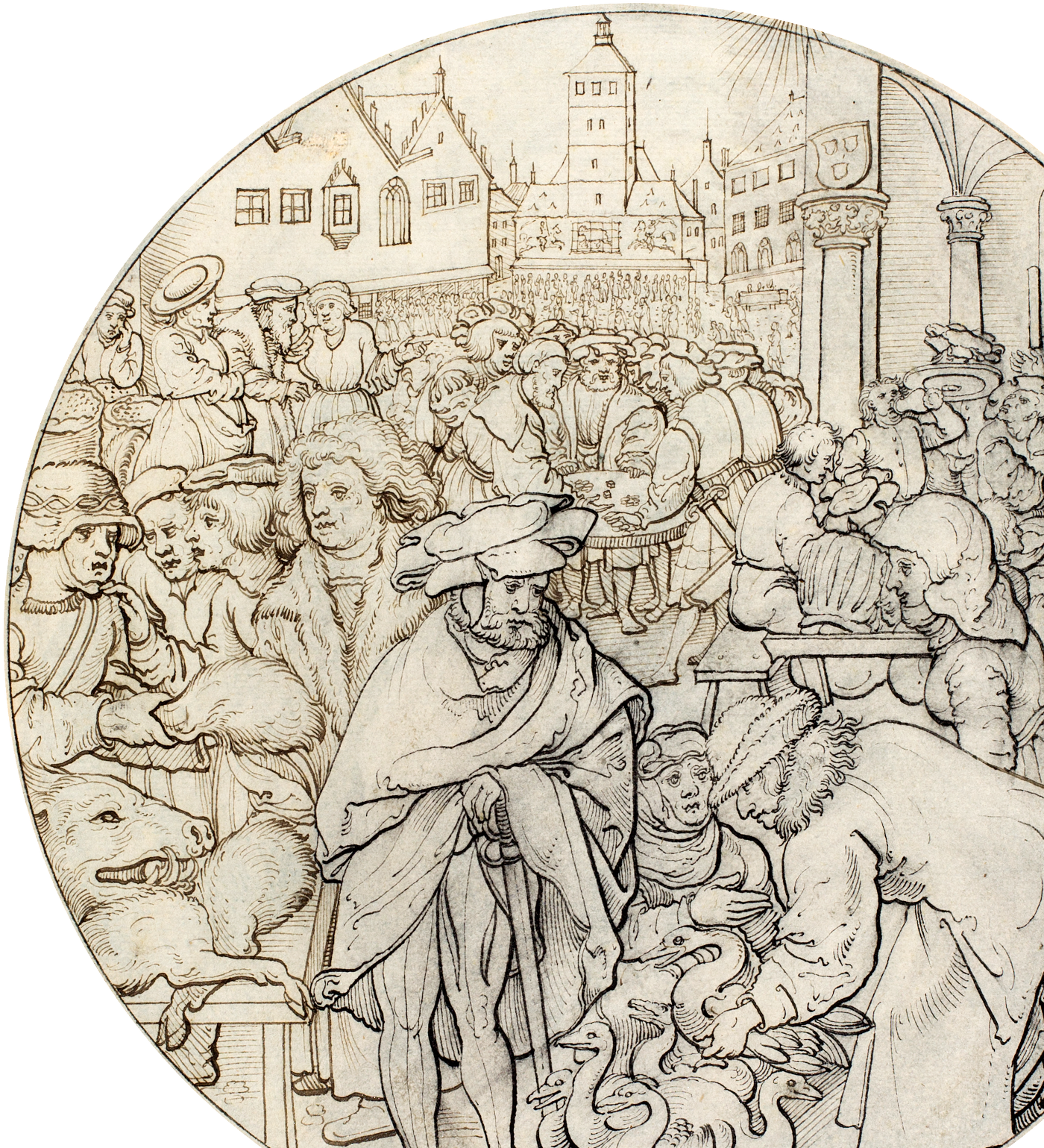
Freiburg i. Br.
22.- 24.03.2017, Haus zur lieben Hand
What is premodern urban historiography? – a simple question hard to answer. Neither did a contemporary concept exist nor were historians able to establish a universally acceptable definition of what the term encompasses. Nevertheless, implicitly there is a set of ideas on the characteristics of urban historiography which is still strongly influenced by the 19th century and the editorial projects undertaken then. It is assumed that the thematic scope of urban historical writing is related foremost to the town as an autonomous political power, and therefore that urban historiography is mainly a phenomenon of the German Empire (including the Swiss Confederation) and Northern Italy.
In the last years, influenced by postmodern thinking and the cultural turn, scholars in the field of medieval and early modern towns and of urban historiography have developed new approaches as well as new perspectives. Whereas former research took an interest in urban unity and a uniform bourgeois self-conception, recent works on urban history stress the diversity of medieval and early modern urban life. Towns are seen as places of high social differentiation and of intense density of communication. In line with this, different agents and groups interacted and competed with each other while dealing with historical knowledge, including members of the ruling classes, merchants, craftsmen, clergymen, families, guilds, courts, residences or monasteries. Thus, especially in the late Middle Ages and the Early Modern Period, urban historiography should no longer be understood and analysed as a one-dimensional phenomenon controlled entirely from the top, but rather as part of a diverse urban culture of remembrance. Furthermore, the well-established geographical focus on the German and Italian cities needs reevaluation, since quite similar sources were identified in the urbanized regions of Flanders, Northern France, and the Low Countries. Additionally, changed methods based on the analysis of the surviving manuscripts rather than edited texts lead to new perspectives. Now, the materiality and mediality of the surviving manuscripts are a matter of particular interest, as well as processes of textual transformations and aspects of intertextuality.
How should these results influence coming research, how should we approach problems, and which methods can best be applied? A key issue derived from these new perspectives both on pre-modern towns and on urban historical writing is: what exactly constitutes the urban character of what we call urban historiography, if ‘urban’ no longer can be used as a synonym for ‘civic’, nor be related exclusively to the town as a political institution controlled by the authorities? In order to synthesize recent findings and consider their implications for further work, we would like to bring together scholars who are working on urban historiography.
To structure the various and diverse approaches and results of the last years, we have identified the following important areas of research: identities, motivations, rival commemorative cultures, mediality and public sphere, urban and regional writing, as well as textuality and hybrid forms. It is also necessary to widen the national focus and compare different regions to another and also to reflect national traditions of research.
The conference languages are German and English. English abstracts of all papers will be given.
| Download Programm | Download Poster |
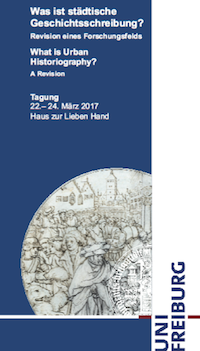 |
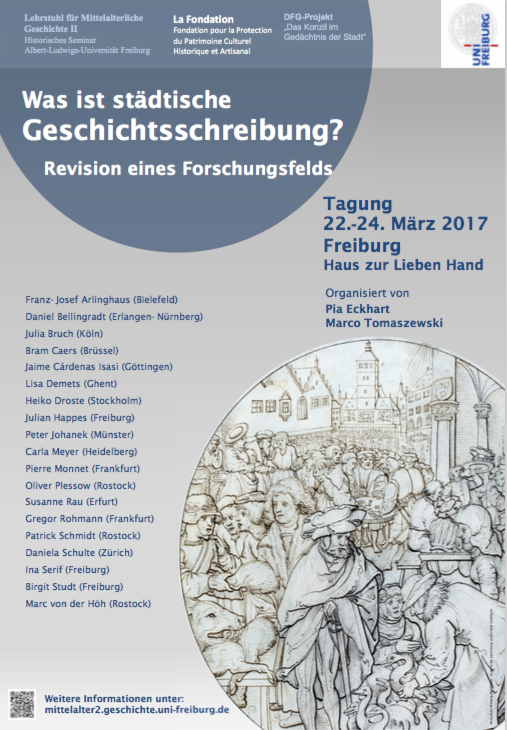 |
| The conference is promoted by: | |
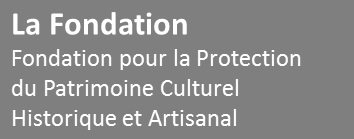 |
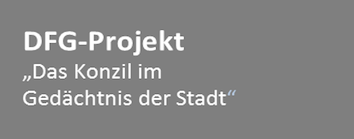 |
Contact and enrolement to:
| Dr. Pia Eckhart Wissenschaftliche Mitarbeiterin Lehrstuhl für Mittelalterliche Geschichte II Historisches Seminar Albert-Ludwigs-Universität Freiburg Tel: +49(0)761/203-3446 pia.eckhart@geschichte.uni-freiburg.de |
Marco Tomaszewski Wissenschaftlicher Mitarbeiter Lehrstuhl für Mittelalterliche Geschichte II Historisches Seminar Albert-Ludwigs-Universität Freiburg Tel. +49(0)761/203-3452 marco.tomaszewski@geschichte.uni-freiburg.de |

